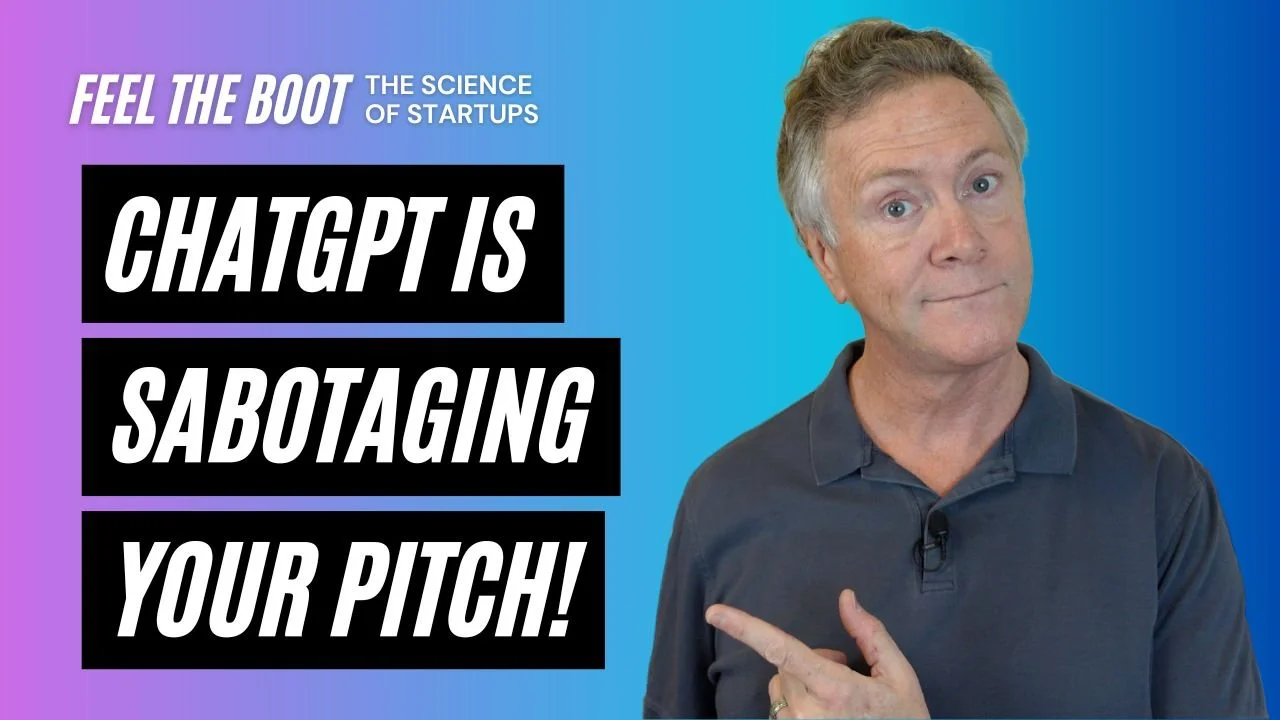122. How Founders Sabotage Themselves with ChatGPT
This might be a hot take, but someone needs to say it…
ChatGPT is not a replacement for your brain.
Okay, maybe that’s not too mind-blowing, but I’ve recently spoken to two founders who made the same mistake. When I asked where their market size estimates came from, they both said: “ChatGPT.”
Really?!?!?!!
Look, if that’s your answer in a pitch meeting, you’re done. No investor will want to hear another word from you.
It’s not that they used AI, it’s that they couldn’t explain or defend the answer.
So let’s talk about how founders are misusing AI, and more importantly, how to use it well.
AI Is a Tool, Not an Oracle
Think of AI like a sharp knife, incredibly useful, but dangerous if you don’t know how to handle it.
ChatGPT is great for starting your research, not ending it.
Want a rough idea of how many people are in your target market? Cool. Ask.
Want to understand pricing expectations in that segment? Sure. Ask.
But always, ask for citations. Then go check them.
Because otherwise, you’re just regurgitating a guess from a language model trained to sound confident, not to be correct.
Building a Pitch Deck? Use Your Voice
Here’s another place founders go off the rails: AI-generated pitch decks.
You toss in a few lines about your startup and out pops a “professional-looking” deck. Only it’s not your deck.
It’s a Frankenstein’s monster of startup clichés and generic slides.
That’s cargo cult behavior, mimicking what others do without understanding why.
Instead, write the deck yourself. Bring in your insights, your strengths, your story. Then use ChatGPT as a second set of eyes. Ask:
Am I missing something obvious?
Do I ramble on too long anywhere?
Is this clear?
Are there better ways to phrase this?
Let it enhance your message, not create it.
And yes, the same goes for hiring someone to create your deck.
You want design help? Great.
But don’t outsource understanding and communicating your own business.
AI Marketing Copy: Beware the Uncanny Valley
Yes, AI can crank out email sequences, blog posts, ad copy, you name it. And most of it feels off.
You know the vibe. Over-excited. Emoji-happy. Too polished. Too robotic.
In a world that craves authenticity, AI copy often feels fake. That’s a problem.
Instead, write the first draft yourself. Then ask AI to:
Tighten up the subject line.
Suggest a punchier call to action.
Point out structural issues.
It’s a brilliant collaborator. But your voice needs to come first.
Legal Docs? AI Hallucinates. Often.
One word: hallucination. AI can, and does, invent legal clauses, case law, and entire facts.
I’ve seen it add a made-up interest rate to a convertible note it was analyzing because it expected one to be there.
Use AI to review term sheets or contracts? Sure.
Ask it to point out anything strange. But never trust it blindly.
And never let it write your contracts. That’s what attorneys are for (or good boilerplate).
Go-to-Market Plans & Product Strategy Are Not Prompt Engineering
A founder told me they had ChatGPT write their product strategy. Yikes.
This is one of the most important parts of your business, and honestly, one of the most fun.
You can’t get it right by just guessing what your customers want.
You need to talk to them. Interview. Survey. Walk in their shoes.
AI can help brainstorm ideas or suggest personas, but it can’t replace real human feedback.
You need to engage, not just imagine.
Financial Models from AI? Just… No.
This one is flat-out dangerous.
Some founders are using AI to generate their financial projections.
That’s just… no. Absolutely not.
First, AI is bad at math. It’s a Large LANGUAGE Model.
Second, your projections are only as good as your assumptions, and no one is feeding GPT every single detail it needs. That’s a garbage-in, garbage-out problem.
Even worse, if you didn’t build the model yourself, you won’t be able to defend it in a pitch. And believe me, investors will ask questions.
I don’t expect your projections to be right, no one does.
I want to know how you think. What you expect? Why you made the assumptions you did?
AI can’t answer those questions for you.
The Right Way to Use AI
AI is like a smart intern. It’s fast. It’s cheap. But it needs supervision.
Use it to:
Generate rough market data (with citations).
Edit and improve your writing.
Vet your pitch or marketing ideas.
Spot oddities in legal docs or investor terms.
Brainstorm new target markets or interview questions.
Just don’t let it do your thinking for you.
Final Thoughts
I’m not anti-AI. I use it every day. It’s transformed how I work. But it’s a tool, not a replacement for your brain, your judgment, or your voice.
Use it wisely. Stay in control. And never forget: investors are investing in you, not your prompts.
Let’s Talk
How are you using AI in your startup? Have you caught it making a big mistake? Let me know in the comments or shoot me a message.
I love a good horror story!
